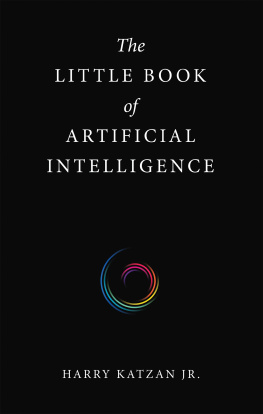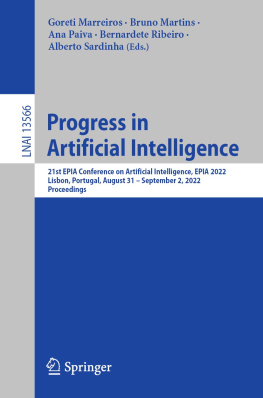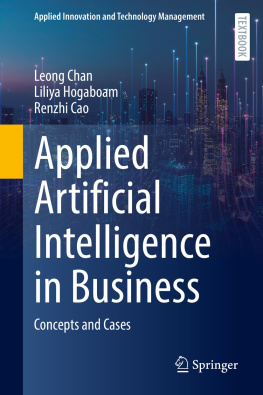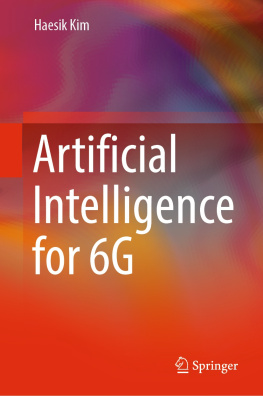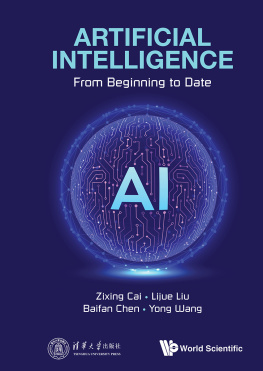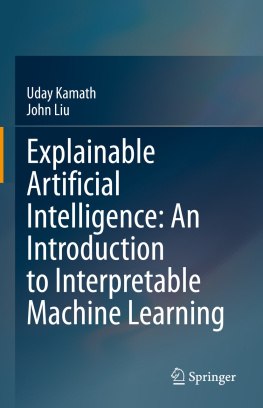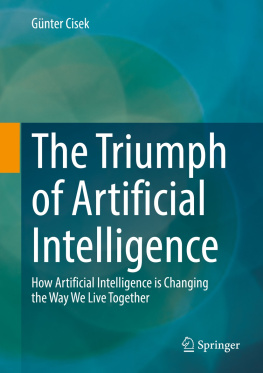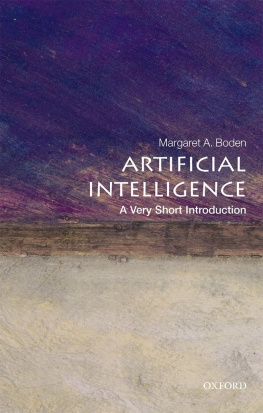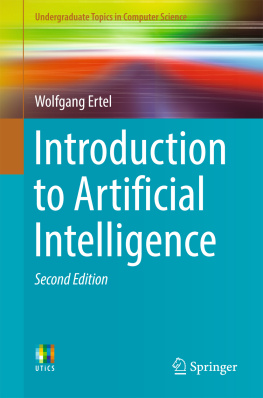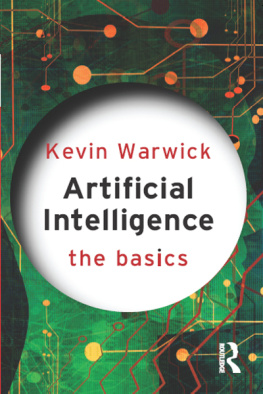ARTIFICIAL GENERAL INTELLIGENCE
An Introduction
Mom and Dad.
Thank you for everything you do.
This would not have been possible without you.
Table of Contents
Definitions to Understand
Intelligence: Being able to learn, understand, and apply knowledge to new situations for specific outcomes.
Artificial Intelligence (AI): Intelligence that can be recreated in an artificial format, for example on a computer.
Artificial Narrow Intelligence (ANI): Artificial intelligence that can do one task at human or superhuman levels.
Artificial General Intelligence (AGI): Artificial intelligence that has the same thinking capacity as a human.
Artificial Superintelligence (ASI): Artificial intelligence systems that have a significantly superior thinking capacity than a human.
Biological Intelligence: Intelligence that is exhibited in something biological, for example, a brain that is composed of cells, neurons, and blood.
Machine Learning (ML): A section of Artificial Intelligence that focuses on a machine, learning concepts and making decisions based on what it knows.
Artificial Intelligence Model: Another word for a trained artificial intelligence system that can be deployed in the real world.
Preface
C reating artificial superintelligence will likely be the hardest engineering challenge humans will ever undertake. I believe that creating artificial superintelligence is possible, and even that the creation of superintelligence is likely. Half of the experts in the field of AI believe that superintelligence will be reached by 2050. It is this same kind of nave belief that has led to all of humanitys other great accomplishments; the internet, the International Space Station, landing a man on the moon. None of these seemed possible but were accomplished through years of effort and determination, and most importantly, through the unrelenting belief in human ingenuity.
Before we dive into the complex world of artificial intelligence, there are a few distinctions that need to be made between different terms that will be used throughout this book. The three very different types of artificial intelligence are artificial narrow intelligence (ANI), artificial general intelligence (AGI), and artificial superintelligence (ASI). Artificial narrow intelligence refers to the kinds of artificial intelligence systems that are available now. They are narrow systems that are trained to do only one specific thing. For example, trying to spot a cat in an image. They would be useless if applied to anything else besides what they were developed for. Artificial general intelligence refers to an artificial intelligence system that has intellectual power which is equivalent to the intellectual power of the human brain. Most importantly, artificial general intelligence will be able to generalize its efforts to learn new things and pick up new skills, unlike current AI systems. Although this kind of system has the same intellectual power as the human brain, it will likely be able to work significantly faster given that computer processing runs at the speed of light, and human neural connections run at a measly 400 meters per second. Artificial superintelligence is the most exciting of the three. It is an artificial intelligence system that is significantly more intelligent than humans. An example of a superintelligence could be an AI system that could make 10 Nobel prize-worthy discoveries every second. This is not a hyperbolic statement when it comes to ASI. Lastly, artificial intelligence (AI) is the umbrella term for any system that tries to replicate human intelligence. ANI, AGI, and ASI can all be called AI systems.
If artificial general intelligence is achieved, artificial superintelligence will likely be achieved very rapidly thereafter. Artificial intelligence tends to progress by exponential improvements which allow the algorithms that make up AI to continually make themselves better at a rapid pace. Whats more, even though artificial general intelligence would have the same level of intelligence as human beings, it will be able to do significantly more work than humans can in a shorter time. A machine does not have to eat, use the restroom, or sleep. And as mentioned before, artificial general intelligence will create a brain where impulses travel at the speed of light. It will also be in the systems interest to make itself as intelligent as possible. The artificial intelligence systems we have now are powerful, but nowhere near the full potential of AI Systems.
The impacts of artificial general intelligence will likely change society forever. Artificial intelligence is likely to help solve problems like cancer and climate change. Historically, after global technological revolutions like the Industrial Revolution, humans have had better jobs with less physical labour. That trend is likely to continue as the field of artificial intelligence continues to progress. AI has already helped make our roads safer with driver assistants and has helped improve many physical labour jobs. Yet, there remains an enormous threat because of automation.
Artificial general intelligence may well be the last invention that humanity ever has to make. AGI will be so much more intelligent and so much faster than humans that it will likely create new technologies faster than we can even imagine them. But that is also a cause for worry. Automation, which has taken away millions of jobs over the past 50 years, will increase its pace. The traditional work-life balance that we have known for generations will be seriously challenged. Some even suggest that superintelligence might spell the end of human civilization. If a super-intelligent system has a goal that we humans are prohibiting it from achieving, it will eliminate us. There are no hard feelings associated with this, and we humans do it all the time. If we want to build a house and there is a birds nest in the way, we get rid of the birds nest. We do not hate birds, but we want to accomplish a goal and the birds are in our way. The same thing could happen if we get in the way of an AI system.
In a Star Trek episode called, The Taste of Armageddon the USS Enterprise is on a special mission to the hostile planet Vendikar. Captain Kirk and Spock beam down to the planet to try and settle things diplomatically. They soon find out that Vendikar has been fighting the Enterprise in cyberspace, and the Enterprise has lost miserably. There were no casualties in the fight, but now the Enterprise needs to hand over the crew that died in the computer simulation. This is an extreme view of cyber warfare but cyberattacks like these happen every day. Hacking has become more prevalent than ever. Ransomware attacks in particular have occurred much more frequently. Ransomware attacks are attacks where a hacker shuts down a critical computer system and will only turn the system back on in exchange for money (usually untraceable Bitcoin). Even fighter jet missions have become obsolete now. Drones are now piloted virtually, which makes it safer for the pilot but more deadly for the targets. Cyber-attacks have become all too common in recent years, and governments have realized that warfare is shifting away from physical armies, and more towards teams of nerdy hackers.
Geopolitically, ASI will be the most powerful weapon that an army could ever build. Many of the world's most powerful nations have declared that the battles of the coming century will most likely be fought in cyberspace. The world's most powerful countries all intend to dominate cyberspace. Vladimir Putin, Xi Jinping, and Joe Biden have all discussed how they believe AI will change the world and their plan to make sure that their country achieves superintelligence first.




